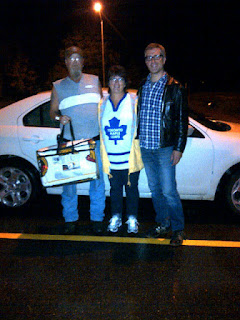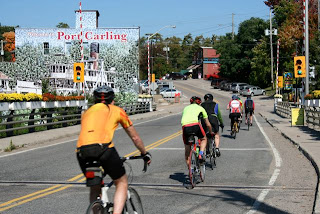 |
| Jenn and Michele –she is so proud that I wrote about her in my book! We created a Celebration of Life for her! |
Many, in cottage country, desire to die at home, in dignity. This is a personal choice. One best made by the entire family. Not all can manage the care of a palliative patient. It is emotionally, physically, mentally draining. My mother died at home. Dad died in long-term care.
There are three parts to Advance Care Planning to ensure that you die with dignity (see below). While Margot Bentley created an Advance Care Plan, the long-term care believed that her signed plan was precluded by their need to care for their resident. This is wrong on such a basic level.
This is a terrible situation in B.C., where they have one of the best hospice programs in Canada. This only works if you are sentient, do not have dementia, and are able to access hospice care.
Margot Bentley was adamant, in 1991, writing up her Advance Care Plan. She did not want extreme measures. Her daughter, as duly appointed decision-maker, respected her mother's right to dignity. The LTC insists on spoon-feeding her; her Advance Care Directive says she did not want this to happen.
 |
| Have the conversation |
I have had several occasions when I have helped a resident, or their families, self-advocate. It is easier at home, where you can control what occurs. The issue, then, is accessing Primary Care (doctors, nurses, pain medications) when you need it. House calls tends to be a thing of the past. Nurses, hired by RFP by the CCAC, are working for for-profit agencies, and have their own protocols. If you have money, you can buy or rent equipment and supplies. If not, you are at the whim of the agency.
 |
| Michele has a 'secret admirer!' |
 Staff believed that Ministry of Health and Long-term Care policy and procedures precluded this. It is not so. The Ministry inspector, whom I phoned, and requested she visit my friend, managed an intervention, changed their policy, and Michele no longer has to eat P.B & J sandwiches alone in her room at dinner time. She experiences extreme pain when placed in a mechanical lift. She was forced up for breakfast and lunch, and preferred to stay in bed for dinner. There isn't enough staff to put her back into her bed when she needs it, and would stay in her reclining wheelchair until two staff could accommodate her.
Staff believed that Ministry of Health and Long-term Care policy and procedures precluded this. It is not so. The Ministry inspector, whom I phoned, and requested she visit my friend, managed an intervention, changed their policy, and Michele no longer has to eat P.B & J sandwiches alone in her room at dinner time. She experiences extreme pain when placed in a mechanical lift. She was forced up for breakfast and lunch, and preferred to stay in bed for dinner. There isn't enough staff to put her back into her bed when she needs it, and would stay in her reclining wheelchair until two staff could accommodate her.The shame is that Margot Bentley made a conscious decision, legally, in writing, and her daughter was trying to enforce it. The Fraser Valley Health Authority ignored her directive.
I cannot tell you the number of people I have seen spoon fed, while in a coma. This is a personal
 |
| A mechanical lift requires 2 to operate it, to put the resident in and out of bed. |
We regularly went in and fed my father either breakfast or dinner, when he no longer could manage to use a fork or knife. I have done the same for several clients over the years.
It broke my heart when one man, without teeth to chew, complained to me he was hungry while waiting for his lunch. The retirement home where he lived was unable to provide staff to feed him at lunchtime when the others were eating. They pureed the regular meals, and, after all were fed, brought his 'meal' and I fed this to him. I bought Ensure, something he could drink, as no one had brought such in for him. After this he regained some strength, and rallied for a couple of months.
Here is what you should know, from Wanda Morris. Visit www.dyingwithdignity.ca for more information
1. Create an advance care plan
2. Appoint a substitute decision maker
3. Review and update it annually.

























